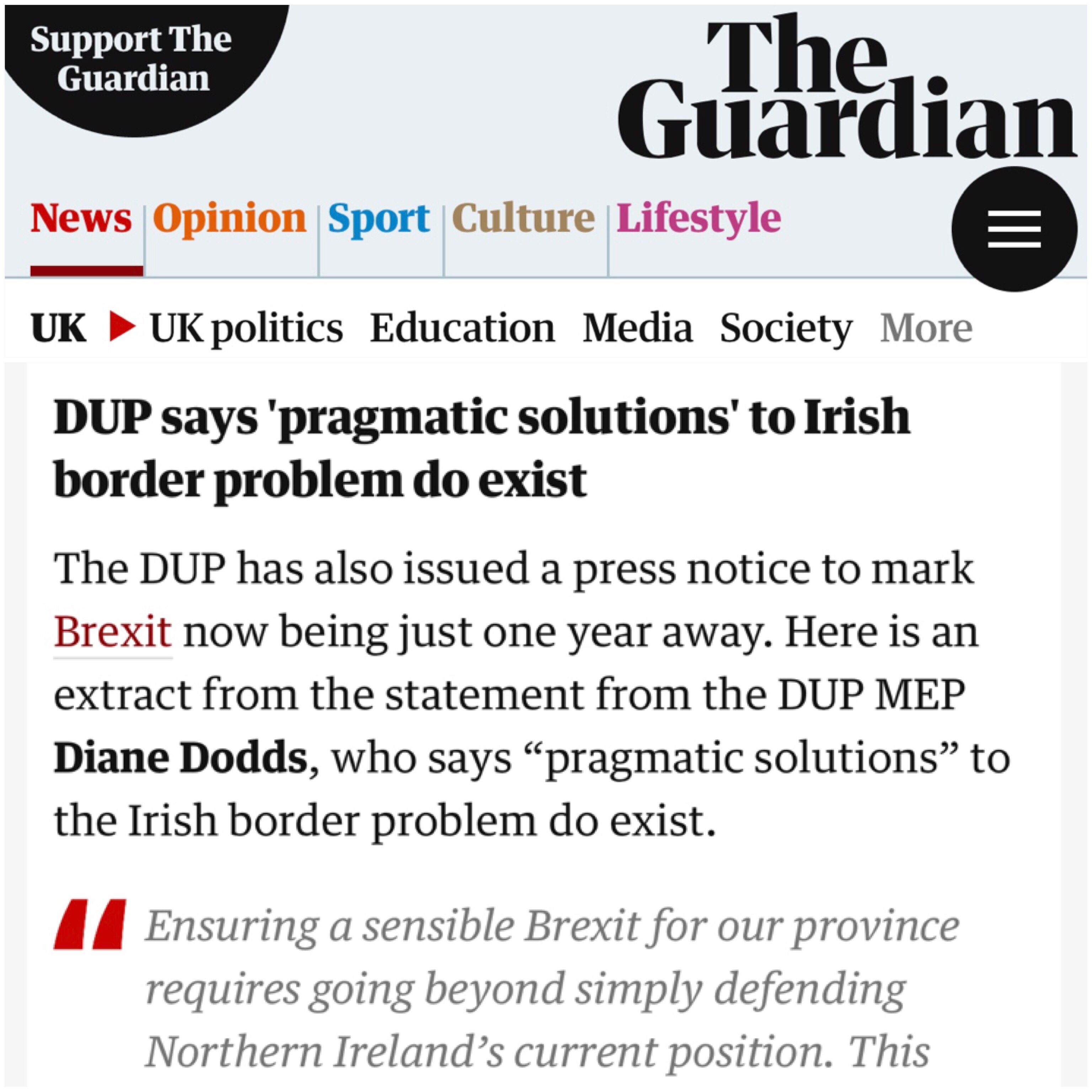DUP says ‘pragmatic solutions’ to Irish border problem do exist
The Guardian writes today about my SmartBorder 2.0 report and the proposed solutions for the post-Brexit borders situation. It is a Press Release from Ms. Diane Dodds MEP for DUP that refers to the SmartBorder 2.0 solution.

This is the article.
DUP has also issued a press notice to mark Brexit now being just one year away. Here is an extract from the statement from the DUP MEP Diane Dodds, who says “pragmatic solutions” to the Irish border problem do exist.
Ensuring a sensible Brexit for our province requires going beyond simply defending Northern Ireland’s current position. This means finding practical solutions to the emotive issue of the border, which has won many hearts but thus far very few open or practical minds. It is worth remembering that the Irish Republic inspects only 1% of goods reaching their shores from outside the EU – second only to Gambia in the fewest physical checks. Given the UK commitment to lift and shift EU rules into UK law it is hard to see how Brexit could therefore equate to the draconian type of border predicted in some quarters.
In practice it makes little sense for the Irish government to adopt a single-track focus of addressing the land border if far more significant economic frontiers at places like Holyhead and Dover are not resolved. An estimated two-thirds of Irish exports to the continent, including many perishable goods, move via the UK land-bridge. 39% of all Irish containers transit Northern Ireland. Drawing a border in the Irish Sea wouldn’t make their movement any easier. That is why we should look at the border issue in the context of the overall relationship. An ambitious free trade deal covering all goods and separate customs partnership can remove the vast majority of friction as a starting point – at every land, sea and air border crossing. In effect, the fewer trade barriers, the fewer the solutions required.
Pragmatic solutions do exist but they hold relevance beyond simply the Northern Ireland border. Respected international customs expert Lars Karlsson has given evidence in the European parliament and at Westminster. His message very clearly is that a ‘smart border’ concept involving digital technology, electronic declarations and trusted trader schemes can be implemented at every UK-EU border and would work under any political outcome.
Moving away from the notion of special treatment to smart solutions can help to make commitments to Northern Ireland operational in a way that respects both internal markets.
Source: The Guardian
You must be logged in to post a comment.